The Staircase follows the life of novelist, Michael Peterson, and the mysterious death of his wife, Kathleen, at the bottom of the stairs. Despite maintaining his innocence, suspicions of foul play arise, prompting an an exhaustive legal battle against Michael, which piques the interest of French documentarians. Based on the infamous case that swept the world, this HBO drama explores a side to the Peterson household previously unseen.
In this Goggler exclusive, we speak to Michael Stuhlbarg and Dane Dehaan on how The Staircase has changed their perceptions surrounding the case and their worldview of the justice system.
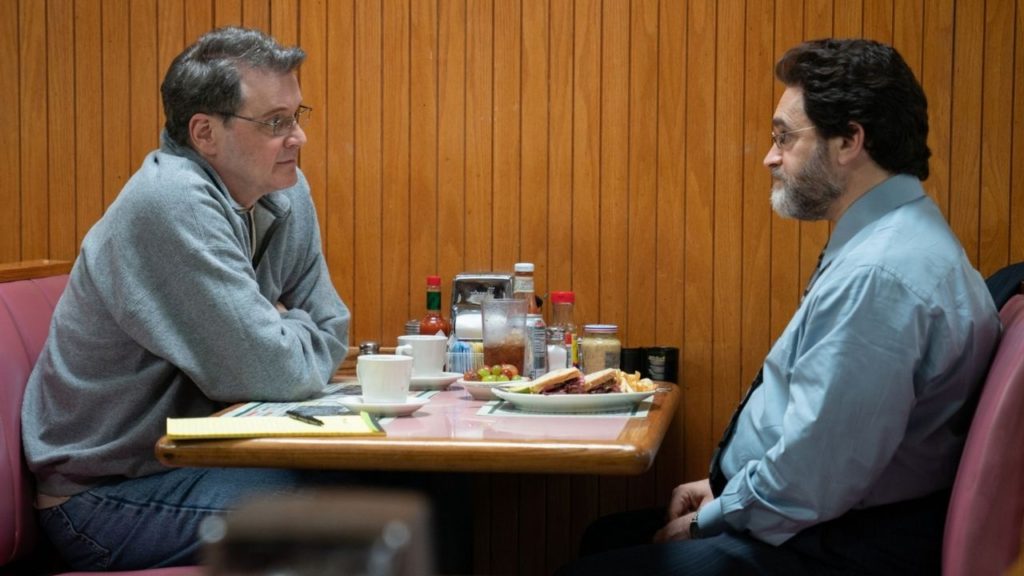
Umapagan Ampikaipakan: Hello again, Michael. We spoke a couple of months ago for Dopesick. It’s lovely to see you again. My question is about being in something that is so prominent in the public sphere. And I was wondering if in your research, and in filming this, whether it changed your perception of the case and what you believe to be truth in fiction?
Michael Stuhlbarg: At the very beginning of this project, they slapped a huge stack of the real information from the case down for all of us who are playing prosecutors and criminal defense lawyers, with all the autopsy photos from both Ressler and Ratcliffe’s exhumation, as well as Kathleen’s. That’s never happened to me before. Usually it’s left to our imagination, but all the papers that were scattered around us were from the event. So we had the opportunity to sift through them ourselves, not just to take our characters’ words for it, but to actually dig into the actual research ourselves and study it. And it was overwhelming. In probably the best way it could be to surround yourself with all these real things. That being said, all the answers that David (criminal defense attorney David Rudolf) gave me when I asked him questions seemed to reflect what I saw as well. So very little surprised me about the case, except for the things that were revealed periodically.
I would ask questions about why wasn’t this person put on the stand, or why wasn’t this bit of information analyzed a bit more. And to be honest, if I were the one actually doing the lawyering. I probably would have spent some time in my inexperience harping on the little things that were found: the fibers of hair, or feathers, or pine needles in her hand, or all the things that, in some cases, may have been left to the side.
In the end, of course, what lawyers do is create the best scenario, given the information that they are privy to, and try their best to reflect to the jury which story is the most understandable, believable, and seems closest to the truth. The burden of proof is on the prosecution. And David was conscientiously just trying to poke holes in the case and reveal how much reasonable doubt there was, of which there was a huge amount.
And forgive me. I’ve gone down a road and I can’t come back. Tell me what else you wanted to know…
UA: Well, I was curious if that changed your worldview in any way?
MS: I got to know the justice system in a pretty pessimistic light. Yet there’s also some truth in it. It’s a fascinating system but it needs some serious help. It’s also all we have right now. So I guess I learned some things by walking around in his shoes. He’s got a remarkable sense of humor about things. And at the same time, he is so very accomplished and smart about how he goes about asking these questions. So I learned a lot. I learned an awful lot. And it was very humbling. And it makes me really glad to know that there are people like him and his wife, Sacha Pfeiffer, out there, trying to help people who have been damaged by the justice system. In fact, they dedicate most of their time now to people who’ve been wrongly accused and imprisoned, and trying to get their cases seen again and retried. So, I’m really glad to know there are really smart people out there doing the good work.
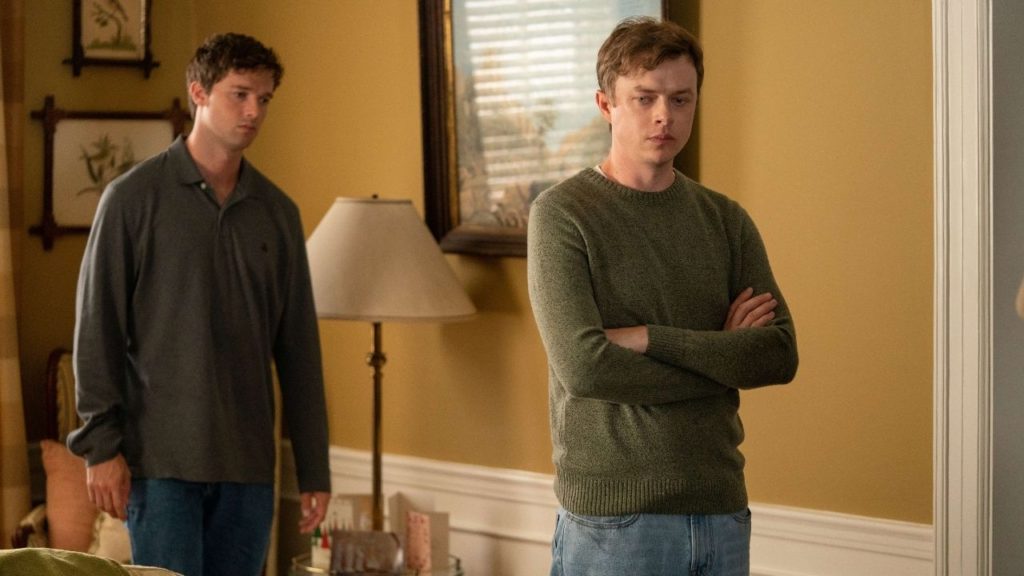
UA: Dane, watching the series, I think reached that point where the truth didn’t seem to matter anymore, and it started becoming about the process and who can form the better argument and make a better case. How did this entire experience change you and the way you think about the justice system.
Dane DeHaan: Well, big question. I think if it changed my worldview in any way, it was because it was the first time for me being back to work in a while since COVID. I think it had been like a year and a half before I had been on a film set and it was just a reminder of learning how lucky I am to do what I do. To be on a film set and be doing this thing that I’ve wanted to do my entire life. And it’s such a gift. So to be back on a film set with incredibly talented people, with great scripts, with an amazing crew, and making this limited series, was a reminder of how lucky I am, and how grateful I am to live this life.
Dane DeHaan: There’s so much about the American justice system that we could make improvements on. Michael Peterson’s story maybe begins to scratch the surface. But the most I learned about the American criminal justice system was on the second season of the Serial podcast where they actually spend an entire year within an American courthouse. And it’s a really incredible look into the American justice system and an all around great look and how we can improve.
13th is also an amazing documentary that should be watched to learn about the American justice system. I think the staircase is an incredible story in a lot of ways, incredibly unique and one of a kind. And it’s one man’s journey with the American justice system. But to start to look at it from a fully systematic point of view and how we can truly improve it, those are the two things that I personally would recommend somebody to watch and learn about the American justice system or listen to it.

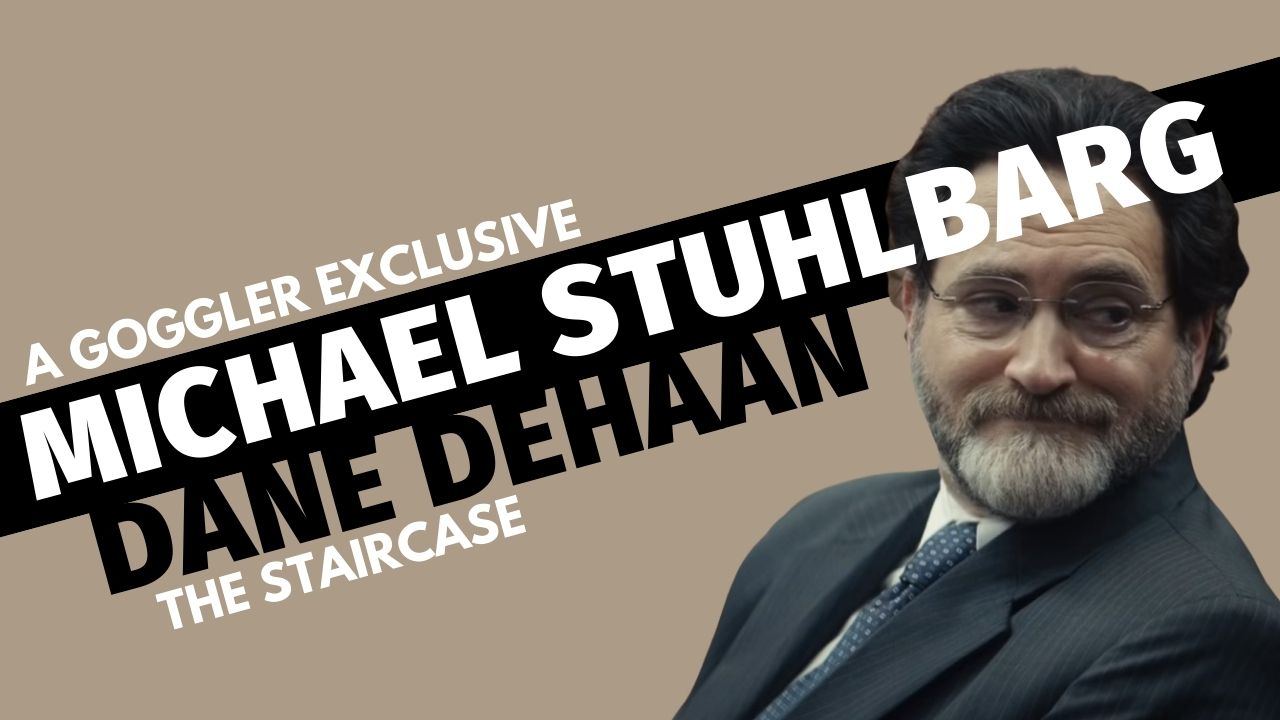



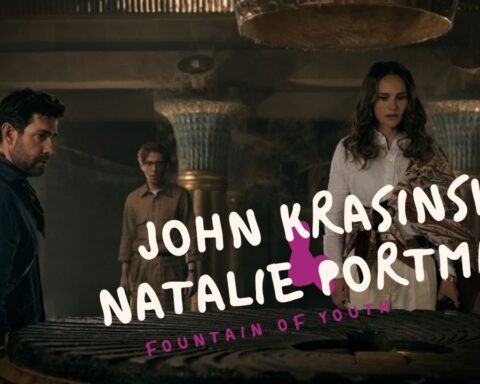
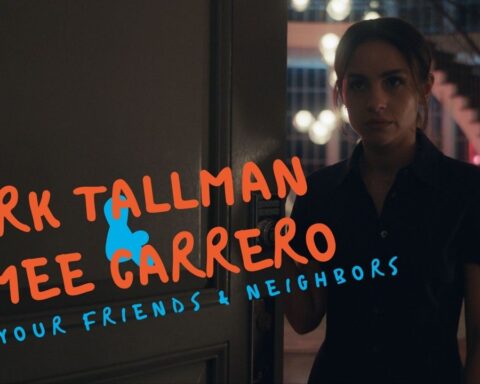
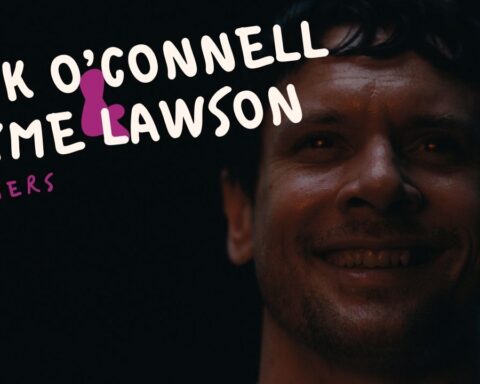
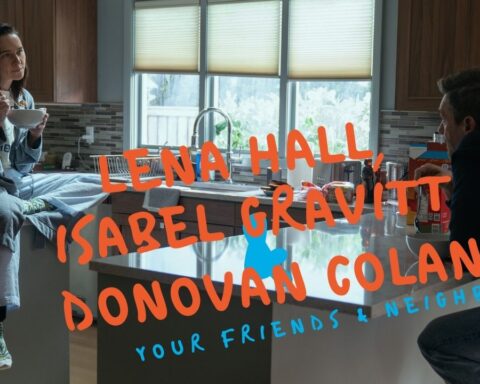
Follow Us